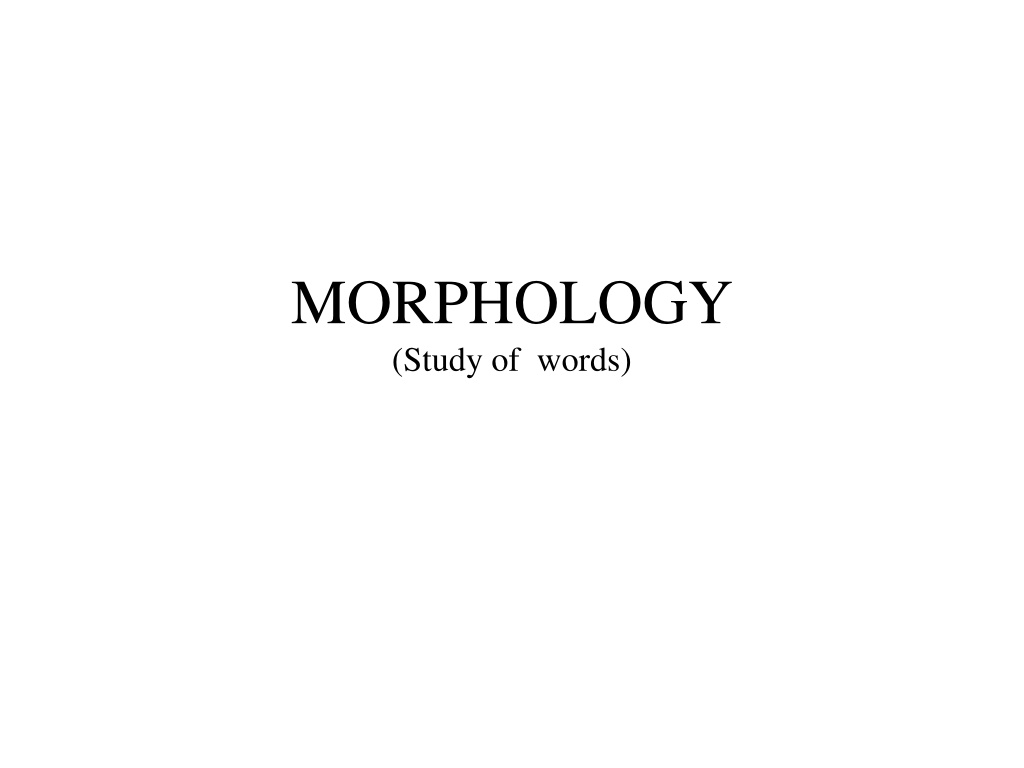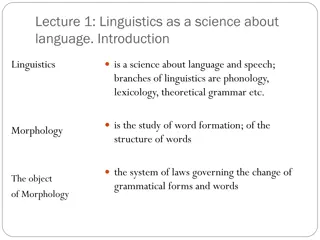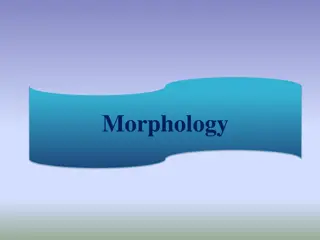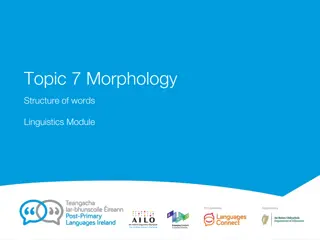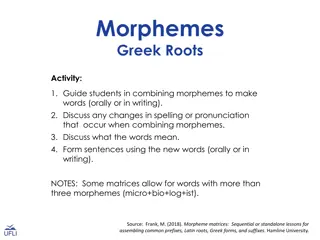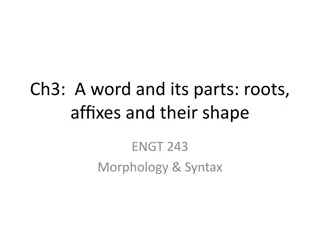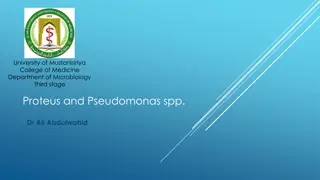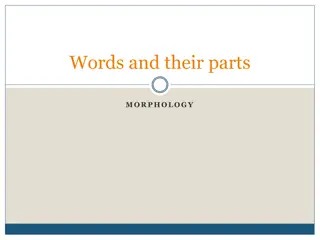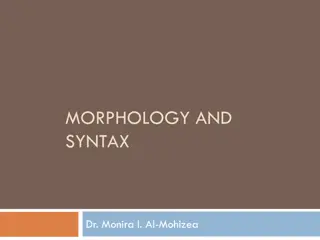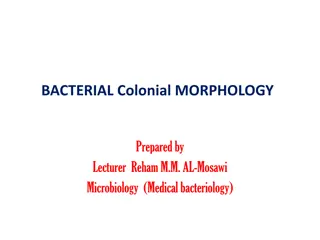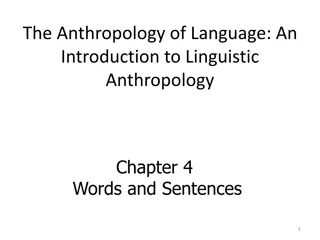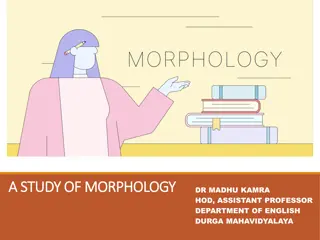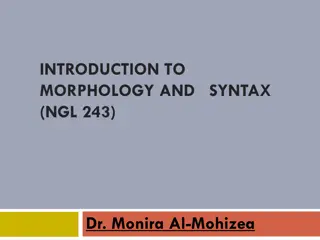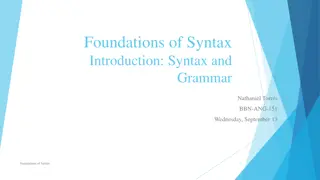Understanding Morphology: The Study of Words and Morphemes
Morphology is the linguistic study of how words are formed and their relationships within a language, analyzing the structure of words, morphemes, prefixes, suffixes, and more. It enriches vocabulary knowledge and aids in understanding word formations.
Download Presentation

Please find below an Image/Link to download the presentation.
The content on the website is provided AS IS for your information and personal use only. It may not be sold, licensed, or shared on other websites without obtaining consent from the author. Download presentation by click this link. If you encounter any issues during the download, it is possible that the publisher has removed the file from their server.
E N D
Presentation Transcript
MORPHOLOGY (Study of words)
1. In linguistics, morphology is the study of words, how they are formed, and their relationship to other words in the same language. 2. It analyzes the structure of words and parts of words, such as stems, root words, prefixes, and suffixes. 3. Morphology study enriches the knowledge of vocabulary. It is useful to understand the process of various word formations.
Morpheme 1. Morphemes are minimum meaningful elements. These are regular combination of phonemes. 2. A morpheme is a minimal grammatical system of a language. Morphemes are the distinct grammatical units which form words. 3. A morpheme is a distinct linguistic form which is not divisible or analyzable into its constituents or smaller forms/units
Types of Morpheme: Morphemes Free Morphemes Bound Morphemes Prefix Suffix Derivational Infix Inflectional Class changing Class Maintaining Derivational Class changing Class Maintaining
Free Morpheme: Free morphemes are those morphemes that occurs alone as independent words. For e. g. dog, film, run, front etc. Free morphemes can be used freely as words having their own specific meaning. They always contain and sustain their meaning wherever they occur in a sentence.
Bound Morpheme: A morpheme that doesn t have any independent meaning and can be formed with the help of free morphemes is called a bound morpheme. Bound morphemes are those morphemes that cannot occur as independent words.For example; less, ness,
Roots The root morpheme is the remained meaningful word after the removal of affixes. They are unlimited in a language because language is open ended. Number of new words is added to the language. In a word happiness , happy is the root word
Affixes: 1.Prefixes 2. Infixes 3. Suffixes
Prefixes Prefixes are kind of bound morphemes included at the beginning of different types of words. They are class changing and class maintaining. For example: in-, un-, sub- incomplete, injustice, unable, uneducated, subway etc. Prefixes are affixed before the roots. They cannot occur independently.
Infixes Infixes are those bound morphemes included within the words. They are less commonly found in English apart from one mode of analysis of plurals like- men, geese etc.
Suffixes Suffixes are those bound morphemes included at the end of different types of words. Suffixes are affixed after the roots or stems. Suffixes frequently alter the word class of the base.
1. Class-Maintaining Derivational Morphemes (Prefix/suffix) Class-maintaining derivational morphemes(Prefix/suffix) are usually produced a derived form of the same class as the root. They don t change the class of the parts of speech. For example; -ship -hood, relationship, leadership, livelihood, manhood etc.
2. Class-Changing Derivational Morphemes(Prefix/suffix) Class-changing derivational morphemes(Prefix/suffix)are usually produced a derived form of the other class from the root. They change the class of the parts of sppech. For example; -er, -ish, -al, teacher, boyish, national etc.
1) Inflectional Suffixes: Nouns Adjectives and Adverbs Verbs i) Plural: -s, -es e.g. cats, toys, benches i) Comparative: -er e.g. bigger, greater, taller i) Simple Present Tense- When subject is 3rdperson singular: -s, -es e.g. plays, goes i) Possessive: - s e.g. sister s, father s i) Superlative: -est e.g. smallest, fastest i) Past Tense: -ed e.g. played, worked i) Present participle: -ing e.g. writing, working ii) Past participle: -en e.g. written, given
Allomorphs Any phonetic shape or representation of a phoneme is morph . -Hockett An allomorph is a variant phonetic form of a morpheme, or, a unit of meaning that varies in sound and spelling without changing the meaning. The term allomorph describes the realization of phonological variations for a specific.
